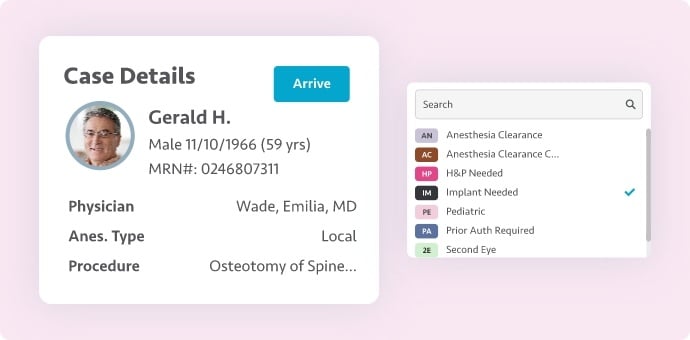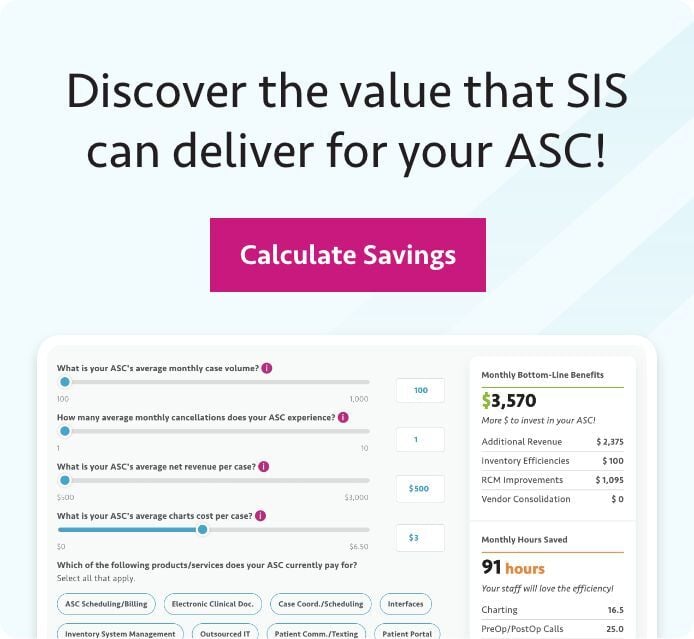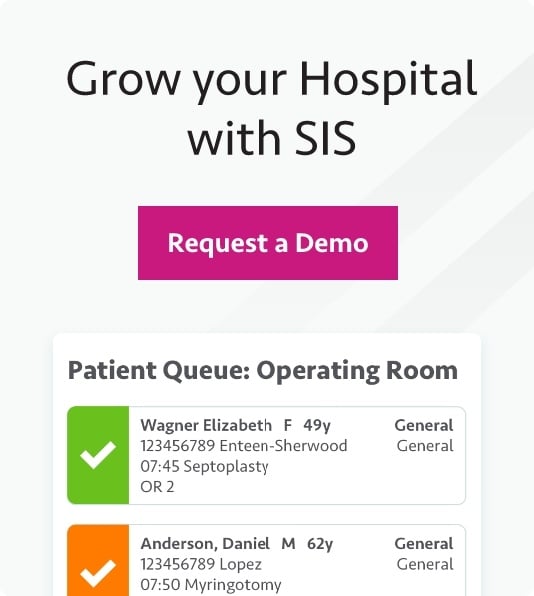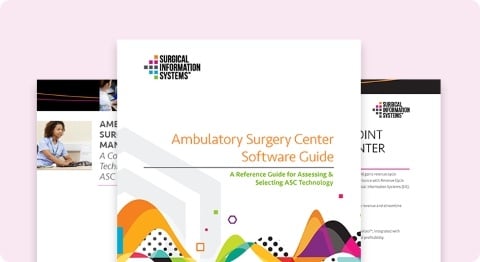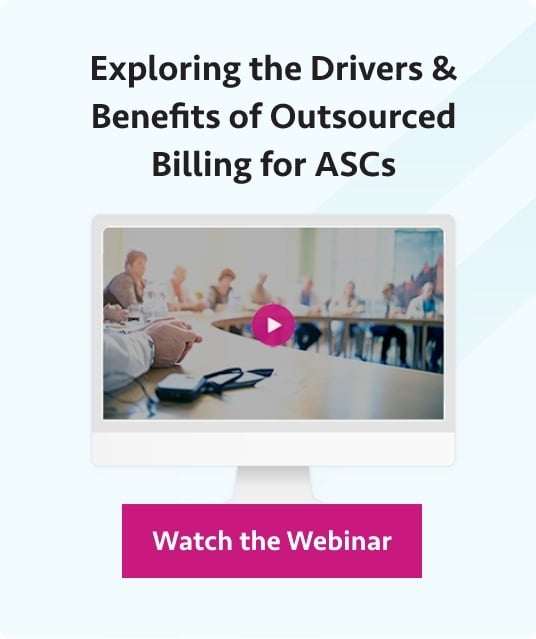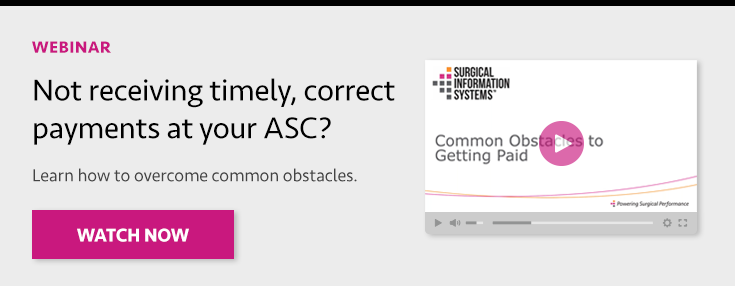 Denied claims are an unfortunate but accepted fact of life for any ASC. If you submit claims to payers, you will receive denials. Some are likely to be justified; others not. But what does not — and should not — be accepted is receiving no payment for services rendered. While you may not be able to collect every dollar owed to your ASC, making your denials and appeals processes a high priority can help your center greatly improve its collections.
Denied claims are an unfortunate but accepted fact of life for any ASC. If you submit claims to payers, you will receive denials. Some are likely to be justified; others not. But what does not — and should not — be accepted is receiving no payment for services rendered. While you may not be able to collect every dollar owed to your ASC, making your denials and appeals processes a high priority can help your center greatly improve its collections.
Follow these 10 tips to help prevent denials from occurring and boost your appeals success rate.
1. Remain vigilant
Receiving a denial is essentially another way of a payer saying, "We don't want to pay you for the services you provided." In those instances where there is a mistake in your documentation, this rejection is understandable. But in many instances, denials occur for reasons that seemingly defy logic.
What ultimately matters when faced with a denial is what you do next. A denial means some of your money is being left on the table. How should you respond? With vigilance. You deserve this money; deserve to get paid for the services you provide. Start with that attitude and you are more likely to be successful.
2. Establish and follow processes
Having the right attitude is critical, but success is also largely dependent upon the processes you implement to flag denials and follow up on them judiciously and properly. These processes should help organize your staff and delineate responsibilities so that staff can use their time most efficiently and tackle the most important (i.e., highest-dollar) denials first.
Once you establish these processes, ensure mechanisms are in place that helps staff follow them consistently. Wavering from processes will often increase the likelihood for denials and delay how long it takes to complete the appeals process, thus further delaying payment. Inconsistent processes can also inject confusion into staff roles and responsibilities.
3. Educate and train staff
I cannot understate the importance of providing adequate education and training to staff. Staff cannot be expected to perform their responsibilities up to the high standards you should set for them unless they are properly educated and trained on what they need to do and how they should do it.
Education and training should not just be part of orientation. Matters concerning billing change all the time. For example, you will probably secure new payer contracts and current contracts will undergo changes. Payers will regularly send bulletins that can change their billing rules overnight. Make education and training ongoing processes.
4. Audit performance
Sometimes even the best education and training won't fully stick with staff members. To help make sure staff properly absorbed what they were taught, routinely audit their performance. Did they follow your processes correctly? How often did they do so? If you identify shortcomings, provide additional education and training as soon as possible.
5. Benchmark results
It's very important to internally benchmark the performance of your staff. If you have two or more people working the same process, compare their performance against each other. What are their success rates? Are they all at 98% or do you have one at 88% success? You can always be managing up.
From an external benchmarking perspective, if you're an ASC losing about 2% of reimbursement because of denials, you're likely in the "best practice" category. Few, if any, ASCs have accomplished 100% deserved reimbursement. Payers are good at making sure that doesn't happen. If you're at 2%, share this news with your governing board and owners and let them know you're in the best practice category. If you're at 5%, 10%, or higher, it's okay. Start working to reduce that percentage, setting reasonable short-term improvement goals and targeting the 2% best practice as a longer-term objective.
6. Reward success
One of the most enjoyable jobs for an ASC leader is to reward and celebrate successes. Find fun ways to reward your top performers or somebody that greatly improved their success rate. If your ASC was losing 5% of its reimbursement to denials and staff bring that figure down a percent or two, celebrate as a team.
7. Be prepared to push back
Some denials are fair. Others are far from it. For those instances when you know your ASC deserves to get paid but doesn't, take a stand. Escalate the issue with the payer. For high-dollar claims in particular, work to get somebody on the phone at the payer who has the power to overturn the denial. You might not always be successful in these efforts, but it is imperative that you try.
8. Negotiate your rights
Every appeals success brings in more deserved money for your ASC and may help you during future contract negotiations. Bring data on denials and appeals to the table. Discuss the reasons for denials and try to come to an agreement with the payer about what can be done to reduce their rate. You may be asked to give up a little reimbursement for some procedures. If that's the case, push for higher reimbursement for others.
A good contract negotiation usually has everyone leaving the table a little happy and a little disappointed, but overall pleased that a relationship is beginning or continuing.
9. Don't let focus waiver
There's no denying it: denials are frustrating. Repeated denials are even more frustrating. But you cannot afford to throw your hands up in the air with disgust and stop pushing back against unjust denials and unfair practices.
Remain focused. Work to make payers regret denying your claims. If they ask for more documentation, give it to them. If a payer representative says he or she will call you back within a few days, if those days pass without your receiving the call, call them back.
Payers are hoping that providers will eventually give up. Don't give them that satisfaction.
10. Know when to fight (and when to move on)
I previously mentioned that ASCs should never accept receiving no payment for services rendered. While I feel that's a good mantra, sometimes it is important to know when not to appeal or stop appealing. The reality is that, as noted, collecting 100% of owed reimbursement just isn't likely. Don't waste time on submitting appeals for denials that have almost no chance of being paid or for such small dollars that completing the appeals process may cost you more than what you might eventually be paid.
It shouldn't happen often, but be prepared to move on from some fights. Save your energy for the bigger battles that can make a more sizable impact on your bottom line.




